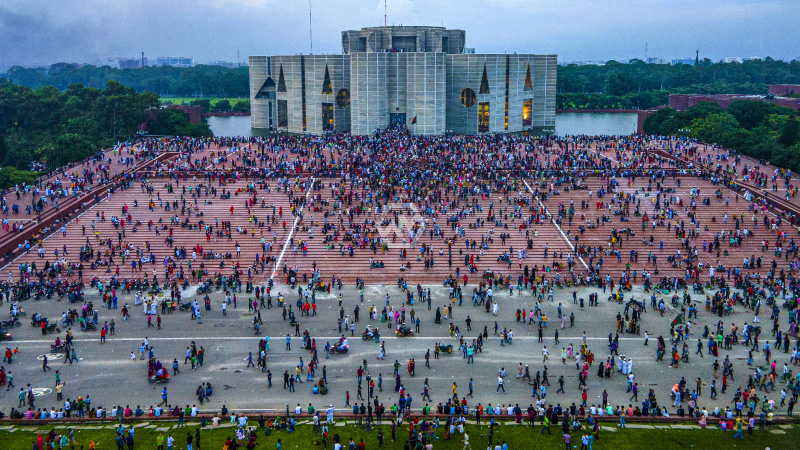- Bangladesh’s political crisis deepens with the Army’s intervention.
- Nepal experiences shifts in power amid pro-monarchy protests.
- Pakistan’s election disputes lead to nationwide unrest.
South Asia is currently facing significant political upheaval, with several countries experiencing turmoil that mirrors the crisis in Bangladesh. In Nepal, pro-monarchy protests have led to a change in leadership, while Pakistan has grappled with allegations of electoral fraud and subsequent unrest. Meanwhile, Myanmar remains in chaos following a military coup, and Afghanistan struggles under Taliban rule.
In Sri Lanka, the ousting of the Rajapaksa family after mass protests highlights the region’s broader issues with political instability and economic hardship. The common thread across these nations is a struggle with governance and the public’s demand for change, reflecting a wider trend of unrest in South Asia. Each country’s unique challenges, from economic crises to political corruption, contribute to the ongoing instability.
Regional Rebellion: South Asia’s Political Instability
Bangladesh’s recent crisis, marked by the removal of Prime Minister Sheikh Hasina and the Army’s intervention, underscores a broader trend of political instability in South Asia. This crisis is occurring against the backdrop of other regional troubles, such as Nepal’s recent leadership changes following pro-monarchy protests. The political volatility in Nepal, driven by demands for a return to monarchical rule, mirrors the broader instability affecting the region.
In Pakistan, allegations of rigged elections have led to significant unrest, with protests erupting in response to what many perceive as unfair electoral practices. The tumultuous situation has seen a resurgence of Nawaz Sharif, whose party’s victory has been contentious. This unrest is reflective of deep-seated political divisions and dissatisfaction with the current governance structure.
Myanmar’s ongoing crisis, initiated by the military coup in 2021, continues to destabilize the country. The Junta’s attempts to quell dissent have faced fierce resistance from various factions, including armed groups. This conflict has exacerbated the humanitarian situation and further complicated efforts to restore democratic governance.
Afghanistan’s situation is equally dire, with the Taliban’s return to power following the U.S. troop withdrawal creating a severe humanitarian and economic crisis. The international community remains divided on how to engage with the Taliban regime, leaving Afghanistan in a precarious state.
“In times of political crisis, the search for stability often reveals deeper issues of governance and public trust.”



